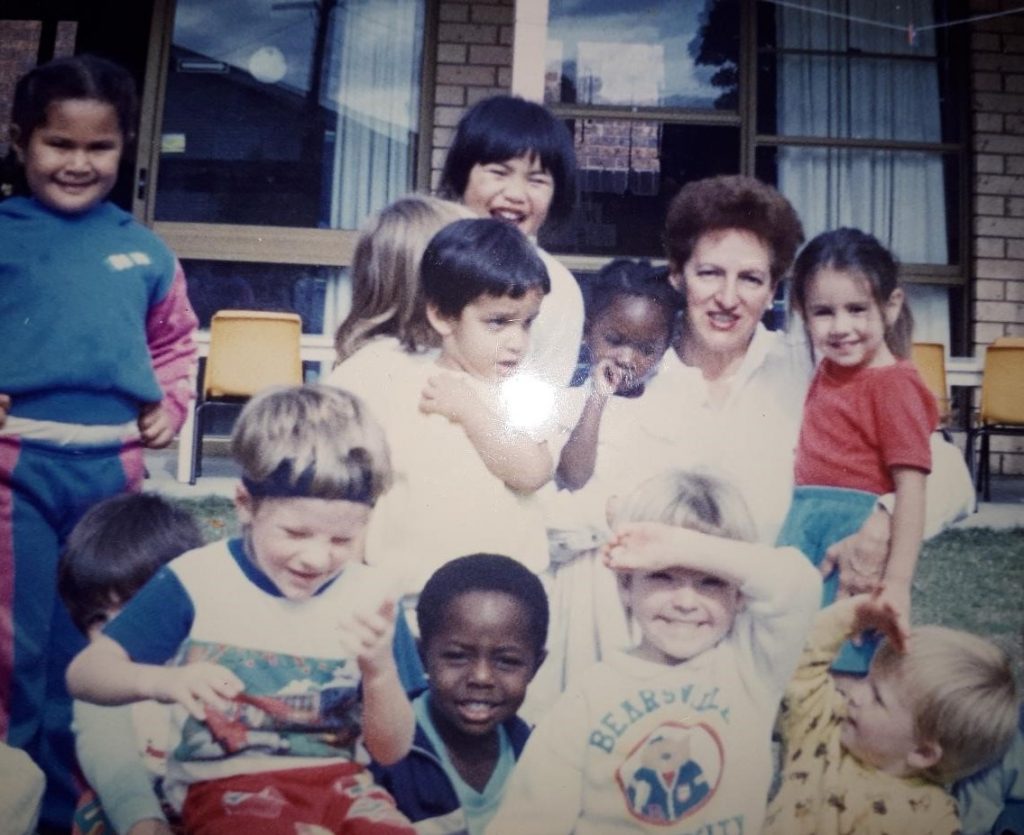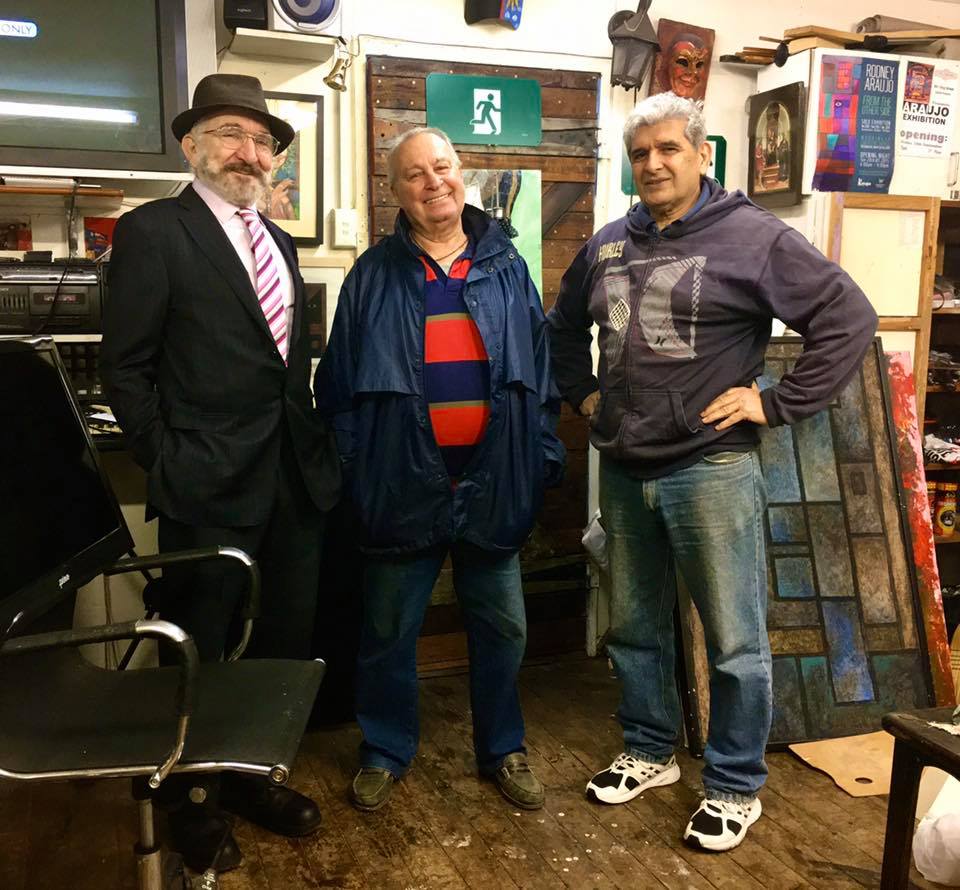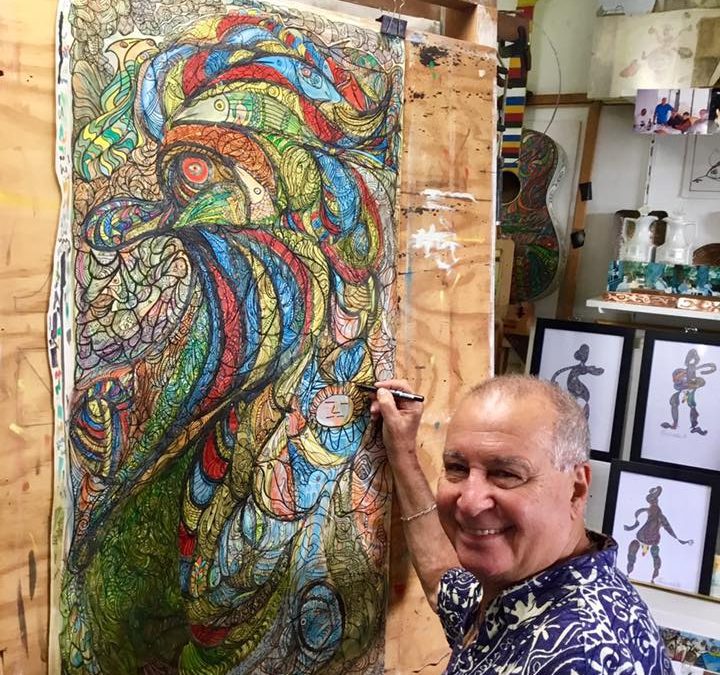Carlos isn’t here anymore. We miss him and we remember him. It’s a terribly sad thing when someone dies. Partly because they have never entirely left us. The larger their lives, the longer they live on through our memories and all they have done for us. Carlos Femenias was one of those giants in the heart. And Addi Road acknowledges his passing as something very significant and important today.
Addi Road CEO Rosanna Barbero recalls Carlos as “a quintessential South American gentleman. A colourful character. He was an activist from Uruguay, but Carlos also spoke fluent Italian, so it was very easy for us two to speak with one another. I really liked that. He reminded me of a figure from an Italian opera actually, almost pantomiming this rich personality. It’s hard to explain… I felt I could see him on the Left Bank or somewhere very bohemian in history like that, an extravagant character with extravagant actions, changing everything and everyone around him.”
The longest resident artist at our community centre, Carlos Femenias was part of a growing enclave of creative spirits who continue to make use of the studio spaces and buildings hired out at subsidised rents for decades now. Much of that vision for the Addison Road Community Centre as an affordable home for artists came through Carlos’ energy and commitment.
Carlos and his wife Teresa (who actually worked in our offices and helped with the beginnings of the Addison Road Multicultural Childcare Centre) were deeply engaged with the history of Addi Road. “He was one of those early people that built Addi Road and put it on the map. He was part of the reimagining of this space here for the community,” says Barbero.

Teresa Femenias and kids at the Addison Road Multicultural Childcare Centre c 1980s

Rodney Araujo Moya, Carlos Femenias and Justo Diaz in the studios at Addi Road.
“Because of his own background, coming from Uruguay, Carlos understood the needs of people who’d experienced struggle and oppression,” Barbero says. “He understood how important it was for them to gather, to find and know other people that have also struggled. Back then, these were all the South American Lefties and young students who had fought against the dictators and military juntas, a generation who had experienced arrest and torture, who saw friends and family ‘disappeared’, who’d had to flee themselves and live in exile. They found each other here. And they used their creative talents to create a new community together – with food, with music, with politics. A real community.”
It’s one moment among many, but Barbero recalls when Carlos made use of his artistry and his craft background as a commercial copper artist trained in Uruguay “to help unemployed people get jobs as house painters and decorators.” Always making solid bridges between the aesthetic and the applied in ways that could help others, art as both personal expression and a social possibility that might free people to live better,
His friend and comrade, the Argentinian musician Justo Diaz, remembers Carlos Femenias welcoming him into this collective spirit. By then Carlos was President of the artists’ cooperative El Taller (‘The Workshop’). Justo remembers Carlos being “very inspiring”, encouraging him to explore new connections between music and painting. Smiling quietly, Justo says, “I was not a visual artists then but I am now.”
“There was no compromise with Carlos when it came to his art. He just painted what he wanted to paint. He was very particular. His painting…”
Justo stops and looks at something no one can see in the middle distance before him as he speaks, visualising the work of his friend in his imagination. “It was like he was looking for forms. It’s hard to describe. Complex. Little lines, forms that grew. Sea forms, wave forms, images with these lines or forms. He was always exploring that line with no concessions, doing his work regardless of selling or not selling, regardless of being in public or working in private. I always regarded him as very honest artistically. Very, very honest.”
“Socially with him it was the same way,” says Justo. “We accomplished the very first art exhibition at Addi Road as well as many other group projects with the community through El Taller. But Carlos always stood back a little, he did not want to be a show-off with his role as President. He liked to be… he liked to be part of our unity.”


